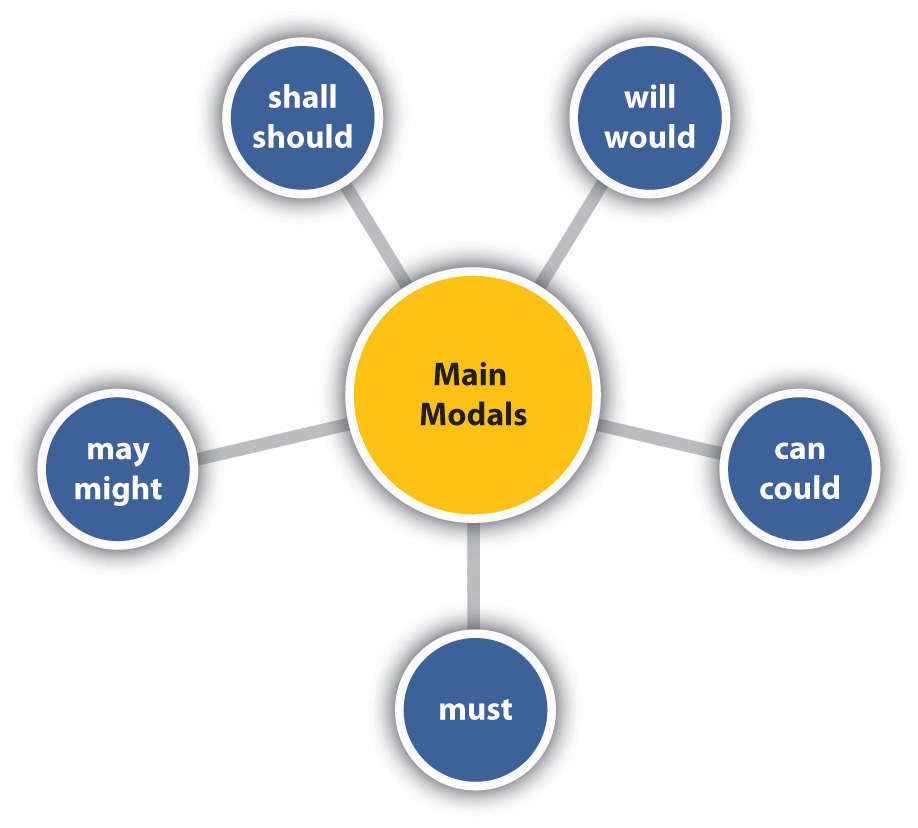This is “Modal Auxiliary Verbs”, section 1.8 (from appendix 1) from the book Writers' Handbook (v. 1.0). For details on it (including licensing), click here.
For more information on the source of this book, or why it is available for free, please see the project's home page. You can browse or download additional books there. To download a .zip file containing this book to use offline, simply click here.
21.8 Modal Auxiliary Verbs
Figure 21.3

The English language includes nine main modal auxiliary verbs that are used with other verbs. These modals, shown in the wheel in four pairs and a single, can refer to past, present, or future tense based on the verbs that are used with them. The modals themselves do not change form to change tense. As shown in the following table, you can use modals to express an attitude in regard to the action or general situation of the sentence.
| Modal Function | Format for Present or Future Tense | Format for Past Tense |
|---|---|---|
| Advisability | should or ought to + base verb | should or ought to + have + past participle |
| You should take the time to visit Yellowstone. | You ought to have taken the time to visit Yellowstone. | |
| Capability | can, am able to, is able to, or are able to + base verb | could, was able to, were able to + base verb or past participle |
| Aisha can tell you who was at the party. | Saul was able to walk on the beam without falling off. | |
| Deduction | must, has to + base verb | must + have + past participle |
| Hank must know Spanish and French. | Lucy must have driven through the night. | |
| Forbiddance | must + not + base verb | N/A |
| You must not take his food. | ||
| Expectation | should + base verb | should + have + past participle |
| The sun should set about 7:15 today. | The boys should have finished their ball game by now. | |
| Intention | will or shall + base verb | would + base verb |
| I will meet you at the theater. | I said I would finish sometime today. | |
| Necessity | must or have to + base verb | had to+ base verb |
| I must finish cleaning before they arrive. | Greg had to get gas before we started the trip. | |
| Past habit | N/A | would or used to + base verb |
| When I worked there, I used to eat at Marvy’s every day. | ||
| Permission request | can, could, may, or might + base verb (in question format) | might or could + base verb |
| Could I go with you? | My parents said I could use their car next week. | |
| Polite request | could or would + base verb (in question format) | N/A |
| Would you please hand me page 45? | ||
| Possibility/uncertainty | may or might + base verb | might + have + past participle |
| Alice might be at work by 6:00 a.m. | I don’t remember, but I might have been the one sitting next to him that night. | |
| Speculation | could, might, or would + base verb | could, might, or would + have + past participle |
| If he conditions enough, he could win his race. | There could have been some real money in that deal we almost made. |




